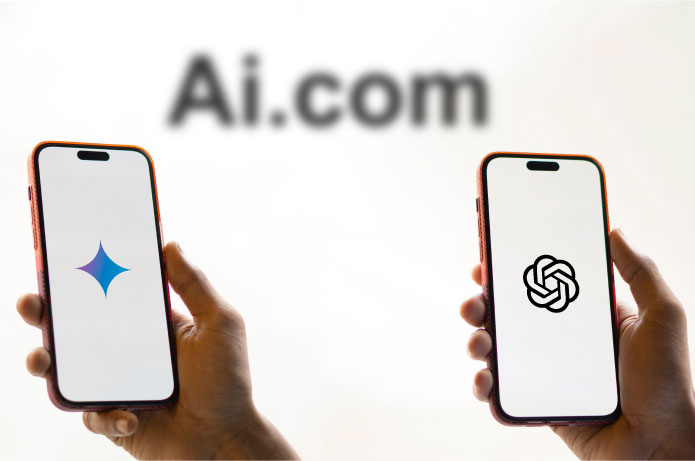We are just at the beginning of 2025, and Nvidia’s CEO, Jensen Huang, has already declared that the “agentic AI era has arrived”. The Google and OpenAI recently announced new agentic models planned for release in 2025, and 40% of major Brazilian companies plan to integrate agentic AI systems into their operations this year.
How is agentic AI different from its predecessors, and what could the tech buzzword of 2025 mean for Brazilian consumers? Analysts are expecting radical changes, but the final outcomes may be more subtle than anticipated.
“Agentic AI is an extremely exciting new stage in the development of intelligent systems,” says Krishna Tammana, Chief Technology Officer at Gupshup. “But, as with all advanced technologies, it’s easy to get caught up in the technical jargon.” Instead, compare it to the scale of change from phones to smartphones in the late 2000s. “If what we’re using now, generative AI, is a single app, then agentic AI is like using a smartphone,” says Krishna.
“Generative AI, like older mobile phone models, is essentially a single-use app. You open it, interact with it, and close it until you need it again,” continues the executive. “If we compare it to a smartphone, which can hold many apps simultaneously, that’s how agentic AI relates to generative AI. It’s no longer about a single app but an entire smartphone full of multiple apps, all interacting with each other at the same time.”
Agentic AI is also designed to perform tasks autonomously, make decisions, and adapt to user input and environmental changes. And while generative AI has seen use cases for both consumers and businesses, this next evolutionary stage will likely impact professional life more than personal life.
Soon, we may have a workday where the most time-consuming and repetitive tasks are handled autonomously, freeing up more time to focus on higher-level strategic, creative, and social functions. In our personal lives, agentic AI could also materialize as a helpful assistant that can place orders and reservations, organize weekend social plans, or even manage our finances, for example. However, since no one knows how close we are to large-scale agentic AI, experts are looking to pioneering industries to lead the way.
“The first industries implementing agentic AI are doing so in back-end operations,” explains Tammana. “The financial sector is seeing results in fraud detection, the medical and pharmaceutical fields are focusing on data analysis, research, and development, and manufacturing is creating smart robots—even entire factories—that can operate with minimal human intervention,” he notes.
Unless they work in these specialized fields, Brazilians’ daily lives may not feel an immediate impact from agentic AI—except in one key area. “At Gupshup, agentic AI handles various requests, but one of the most advanced is managing customer interactions,” continues Krishna. “So, I wouldn’t be surprised if, this year, consumers start noticing a difference when speaking with customer support agents.”
These models are trained on company-specific data, with built-in safeguards and human agents available for escalation at any time. Gupshup’s CTO advises consumers to watch for the shift from interactions with chatbots or humans to a smoother service. “Not being able to tell whether it’s human or AI means we’ve done a great job. But, if the agent you’re talking to is knowledgeable, helpful, proactive, and available 24/7, then this might be your first interaction with agentic AI,” he explains.
In Brazil, a partnership with a major national fashion brand highlights the emerging agentic AI landscape. Gupshup is among the first conversational AI platforms to launch an AI agent in Brazil for the retailer Reserva. The brand’s AI agent offers users a unique shopping experience, with AI availability directly on WhatsApp. Users can search for products via text or voice messages, even describing characteristics of a person they want to gift. This was done on Mother’s Day when users could describe their mother to find the perfect gift.
This way, the AI understands and recommends products that best match the user’s description, who can easily check available products via WhatsApp’s native carousel model, access more product details, or even be redirected to the website to complete the purchase.


